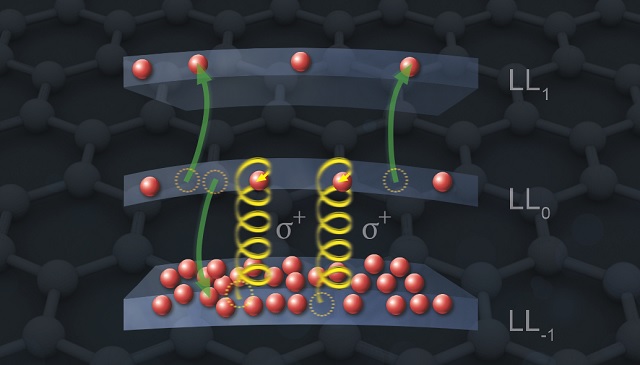 Auger scattering in graphene. Image: HZDR/Voigt.
Auger scattering in graphene. Image: HZDR/Voigt.
Graphene is an ultra-thin, flexible material which was discovered ten years ago. It has a 2D structure which consists of a single layer of carbon atoms. Graphene is a more effective conductor of heat and electricity than copper, and it also has a higher breaking strength than that of steel.
Graphene’s Landau levels, or its energy states in a magnetic field, are found to behave differently when compared to those of semiconductors. While many studies have been carried out on graphene, this is the first study which examines the dynamics of graphene electrons in a magnetic field.
When graphene was exposed to a four-Tesla magnetic field, its electrons occupied specific states. Free-electron laser light pulses were used to excite the electrons into a specific Landau level and then a temporally delayed pulse was used to study the evolution of the system.
A paradoxical effect was observed. It was discovered that the specific energy level into which the electrons were pumped gradually dissipated.
The researchers discovered that the unusual arrangement was due to collisions between electrons, which occurred due to the Auger scattering effect. However, in this case the effect is very strong and has led to the depletion of an energy level.
This new research could help to develop a Landau-level laser which can produce light in the terahertz and infrared ranges with adjustable wavelengths.
The theoretical study of this finding was then conducted at the Technical University Berlin. This study has been published in the scientific journal Nature Physics.